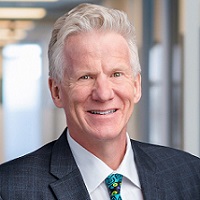 By Nick van Terheyden aka Dr Nick, Principal, ECG Management Consulting
By Nick van Terheyden aka Dr Nick, Principal, ECG Management Consulting
Twitter: @drnic1
Host of Healthcare Upside Down – #HCupsidedown
The recent buzz around ChatGPT got me thinking about the history of this technology and led me to wonder: why the sudden renewed interest? Is it all hype, or has there been some new leap that sets up the potential for additional applications of the technology?
The technology underlying speech recognition has been around for decades—analysis of words and audio sounds in big data sets that can be processed to create predictive models. I’ve spent a significant part of my career in speech recognition. I joined the community in the very early days when it was still a narrow application and very research oriented, struggling to move from the lab to general use.
Episode NOW on Demand
There were some key inflection points, such as the addition of continuous speech recognition from the original one-word-at-a-time method, which was useful, but only to a degree. When we threw enough horsepower at it, optimized the sound to reduce the background noise with high-quality directional microphones, and trained the speaker model, it could do some amazing things in a heavily scripted demonstration.
Sadly, a lot of people got sucked into the hype cycle by these demonstrations—some I probably gave myself—and then discovered the reality was far more nuanced. My lasting quote from that time was that “speech recognition has been two years away for the last 10 years…and it’s still two years away.”
But that’s not true anymore, and the inflection point came with the arrival of Siri. Apple’s digital assistant wasn’t the first voice enablement, but it was the one that caught people’s imagination. Are we at another critical inflection point with ChatGPT? Will we see a major acceleration in automation and insights generated from semi-intelligent systems that generate a newfound understanding in healthcare?
Prashant Natarajan is the bestselling author of Demystifying AI for the Enterprise and the Vice President and General Manager H2O.ai. On this episode he helps us calibrate our expectations for ChatGPT—while encouraging us to be optimistic. Below are a few excerpts.
Get excited…but not too excited.
“On one hand, the excitement around ChatGPT is real and needs to be celebrated for various reasons. On the other hand, we have to temper it with what makes it usable. And we should also talk about what we need to do to scale it so that we don’t recreate the digital divide that technologies such as AI, advanced data science, machine learning, and deep learning may inadvertently create, where the world is divided by those who have access to large language models and those who don’t.”
‘A’ is for…
“AI is not just the stuff of The Terminator anymore. It’s about things that can make your life easier in an augmented way, in an amplified way, and in an assisted way. Which goes back to my comment that I make frequently in my talks, as well as in my book—the ‘A’ in AI is not always just artificial intelligence. It’s also amplified intelligence, augmented intelligence, and assisted intelligence. Why we are seeing so much excitement with ChatGPT is because it meets two of those. Its augmented intelligence allows me to search for things to augment the way I think, the way I speak.”
Adjusting expectations for AI in healthcare.
“There’s no single intelligence in a box that’s going to cure any disease, not even the common cold. In 2017, when deep learning was all the rage, I wrote in my book saying ‘no, we are not going to have a world where deep learning is going to completely replace radiologists.’ So I just like to continue that informed skepticism with respect to [AI].”
This article was originally published on the ECG Management Consulting blog and is republished here with permission.
About the Show
The US spends more on healthcare per capita than any other country on the planet. So why don’t we have superior outcomes? Why haven’t the principles of capitalism prevailed? And why do American consumers have so much trouble accessing and paying for healthcare? Dive into these and other issues on Healthcare Upside/Down with ECG principal Dr. Nick van Terheyden and guest panelists as they discuss the upsides and downsides of healthcare in the US, and how to make the system work for everyone.
Tune in weekdays at 9am, 5pm, and 1am ET.
Join the conversation on Twitter at #HCupsidedown.
